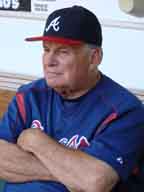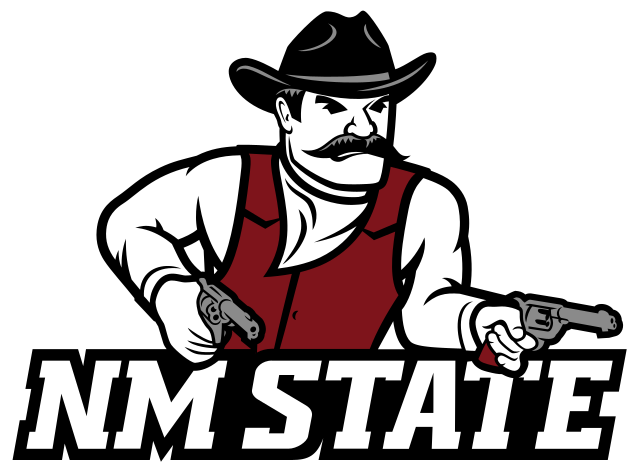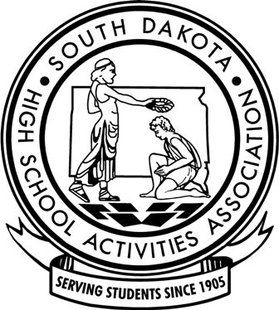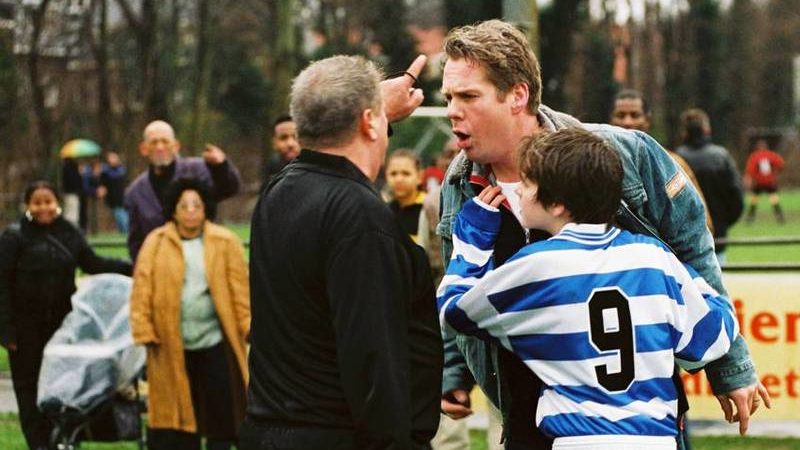What About Bob?
Bobby Cox
 When it comes to the game’s great managers, Bobby Cox is somewhat overlooked and underappreciated for what he has accomplished on the baseball diamond. Cox is one of the most successful managers in history, having won 14 division titles, five pennants, and a World Series (1995). He has been named the Manager of the Year four times in three different decades (1985, 1991, 2004-05) and is only one of two managers to have won the award in both the American and National Leagues. During a late season roadtrip, Cox granted Scholastic Coach & Athletic Director an exclusive interview inside the Atlanta Braves’ clubhouse.
When it comes to the game’s great managers, Bobby Cox is somewhat overlooked and underappreciated for what he has accomplished on the baseball diamond. Cox is one of the most successful managers in history, having won 14 division titles, five pennants, and a World Series (1995). He has been named the Manager of the Year four times in three different decades (1985, 1991, 2004-05) and is only one of two managers to have won the award in both the American and National Leagues. During a late season roadtrip, Cox granted Scholastic Coach & Athletic Director an exclusive interview inside the Atlanta Braves’ clubhouse.
COX: We moved from Oklahoma when I was about three years old. My childhood was great. The San Joaquin Valley is noted for grapes and fruit. It was a farming community. So anytime you live in a farming community you have a great upbringing. As kids, we worked in the fields with all of the other kids and parents. I grew up in Selma, CA, which is a very small town. It was a climate that you could play a Friday night football game and take batting practice Saturday morning. It was year-round athletics, actually. Which was great!
COACH: You graduated from Selma (CA) High School in 1959 and attended Reedley (CA) Junior College. What sports did you play? What were your goals and ambitions?
COX: I played them all – football, basketball, and baseball. That’s what we did. Actually, one of my ambitions was to be a major league player and then a high school football coach. That is what I kind of had in mind.
COACH: You signed with the Los Angeles Dodgers as an amateur free agent in 1959 before making your major league debut with the New York Yankees on April 14, 1968, after winning the third base job in spring training. However, bad knees forced you to retire at the age of 30, after spending two seasons in the Bronx. What kind of player were you?
COX: Just average. My knees were shot by the time I got to the major leagues. I struggled a little bit when I was up there. But I loved it. It was a great experience. I had the opportunity to play alongside Mickey Mantle in 1968 – his last year, my first year. It was a wonderful experience playing in the old Yankee Stadium.
COACH: In 1971, you spent your first year as manager of Fort Lauderdale of the Florida State League, which finished in fourth place. The next year, your West Haven team claimed first place in the Eastern League with an 84-56 record and won the 1972 league championship. Following that were two second-place and two third-place finishes with Syracuse of the International League, with your 1976 club winning the league championship as well. What did you learn about yourself as a manager during that period and what was the biggest adjustment?
COX: When I was first got into managing, my job, in my mind, was to see that every player on the team got to the major leagues. So whether it was fantasy in my mind or whatever, that’s the way I went about my business. And I went about my business every year that I managed in the minor leagues. There was no changing. I did what I did.
COACH: You returned to the majors in 1977 as a first base coach for the Yankees, who went on to win the World Series, under the late Billy Martin. How did that experience prepare you as a future big league manager?
COX: I had already managed six years in the minors and managed winter ball in Venezuela. That year was just special because I did get to coach with Billy and we did win a World Championship. I have very fond memories of that season.
Ralph Houk was a big influence when he managed me with the Yankees. Certainly, Billy was. Dick Howser was a coach on Billy’s staff. So was Yogi [Berra] and Elston Howard. So I got to know those guys really well. Pick their brains here and there. But basically when you go into managing, you are what you are. You don’t want to change much.
COACH: In 1978, former Braves owner Ted Turner hired you for your first big league managerial position. In 1981, you were fired. What was the experience like for you and how did you deal with rejection, something virtually every manager on every level encounters.
COX: I don’t think any of us feels that we deserve it when it happens. But I felt good about it. I felt like I was going to get another job pretty quick. I hated to leave because I knew the team was getting ready to do something after all of those years. It was a struggle there. But we had a lot of young kids coming up and it didn’t take much more for us to get over the hump. But it was fine. I knew when I got into the business that it wasn’t going to last very long.
COACH: Following a successful stint with the Toronto Blue Jays, guiding the team to the 1985 American League East Division title, you spent six seasons as the Braves GM before returning to the dugout in 1990. What was it that brought you back?
COX: I lived in Atlanta, and that was a big factor. I liked being a manager much more than a GM, actually. It’s more fun to be around the players on a day-to-day basis. The game itself presents a great challenge each and every day. That’s the fun part of baseball.
COACH: When did you come to the realization that you wanted to be a manager? Was it always something you aspired to do?
COX: I really didn’t have the courage to ask to stay in the game, because I was quitting after the 1970 season. I would go to Syracuse, the Yankees’ Triple A affiliate, and finish my career there. Then I’d go home and back to school and maybe become that high school football coach I always wanted to be. That’s what I wanted to do, go back. I didn’t know if I could afford to go back. That was the intention.
Then Lee MacPhail, who was the director of player personnel, flew down to Richmond, where Syracuse was finishing the season. He met with me and suggested that I stay in the game. The Yankees had a managerial opening in Fort Lauderdale and he thought that I would be good for that. So, I accepted.
COACH: One of your best characteristics is that you never panic, maintaining an even keel no matter what the circumstance. How important is it for a manager to retain his composure and steady the club?
COX: I think we all lose it once in a while. But I think you do need stability. You can’t lose your composure and lose sight of the game itself. You can’t do both. If you’re going to lose it, you have to keep focused on the game. And I’ve been able to do that, for the most part.
COACH: In 2005, perhaps your finest managing job, the Braves used 18 rookies. What are the keys to dealing with younger players so as not to alienate them nor damage their psyches as they struggle making the transition to the majors?
COX: I never expect guys to struggle. So when they come up here, I expect them to compete with the team on the other side and not be awed by them or anything else. They’re treated just like the veterans. I basically treat everybody the same. There’s only one reason why you’re up here and that’s because you have talent. I do have patience and if somebody gets off slow, I am going to stay with them, because they have talent. These kids immediately fit in and did well.
COACH: What pet peeve do you have about today’s young and up-and-coming players?
COX: I don’t have any. We have a great organization that has a lot of discipline in the minor league system. And all of these kids come up ready to play in the big leagues. Mentally they know what they have to do. Each individual is different. But every play that has come up to our team has just been outstanding.
COACH: What do today’s players and coaches need to know about winning with class, losing with grace, and keeping the game in its proper perspective?
COX: I’m big on that. I like to see teams that play a professional brand of baseball. Not showing up the other team and dancing in the dugout and all of this kind of stuff you’re starting to see in the game. I don’t like that. And our players don’t do that. If the other team wants to do that, let them.
COACH: What do you look for when assembling a coaching staff?
COX: A good balance. You do need a pitching coach. A hitting coach is important. A third base coach is your right hand guy who can win or lose games as much as the manager can. Bench coaches are also important. There’s a lot more work involved nowadays than when I broke into the major leagues. We didn’t have any extra work. And it seems now that’s all we do. Maybe the players are coming up younger and everybody thinks they need more work. But if you have the talent it’s going to show.
COACH: When is the right time to hold a team meeting and what kind of approach do you take?
COX: Generally, when John Smoltz is going to pitch we like to have a meeting. (Laughter). Most of the meetings are just spur of the moment type things. If things aren’t going right or somebody’s not abiding by the rules that you have in place and things like that, then they need to be talked about. I don’t like to have meetings after games. I try to wait until the next day.
COACH: Can you expound upon the importance of pre-game meetings and what do they typically entail?
COX: Our meetings are held before the first game of every series. Instead of just the pitchers talking to the pitching coach and the pitching coach talking to the catchers, I like to have everybody involved and get everybody’s input. Our outfielders make some good suggestions on how to play guys and how to pitch to them, other than what we get from our advanced scouting reports. Any little thing that somebody can come up with, I think if it can help us win a couple of games a year, that’s huge.
COACH: Why have so many managers gone away from acting on gut instinct in favor of computer printouts and charts? What are your thoughts on the new breed of managing?
COX: We go almost entirely on instinct. But we are privy to a lot of information. And you should read it and study it. But yet you don’t want to get brainlocked before the game starts. You just have to trust your personnel.
There’s nothing wrong with modern technology. Everything can be improved. But scouts are still extremely important in my mind. There’s a huge need for them. You still need to have a foundation of good players. If you have that, you’re always going to have a decent team. And more times than not, you’re going to have a good team.
COACH: What are the biggest challenges facing a manager in today’s game?
COX: The challenge is to win every year. There are no other challenges. The media are basically great people. The challenge is just trying to win and that never goes away.
COACH: You are the longest tenured manager in the majors. You’ve won in both the National and American Leagues, in both the pre and post 1994 Strike eras, and with different types of players. Your early Braves teams were young, your middle era teams were veteran laced, and your recent teams have once again been youth-dominated. Furthermore, the makeup and style of your teams has varied, from dominant pitching staffs to offensive juggernauts. What has been the secret to your success in a profession that discards managers like yesterday’s newspaper?
COX: Good players. We’ve had good players here forever. Whatever little success I’ve had, that would be the key.
COACH: While many fans are familiar with the Joe Torre’s and Tony LaRussa’s of the world, not many people know about you. Nor do you get the credit you deserve due to your unassuming and humble demeanor. Does that ever bother you?
COX: Everybody has an ego. But honestly, it doesn’t matter. I don’t know if I do or not. I’ve heard that before. And it absolutely makes no difference. The only thing that I want is the respect of the players and for them to play as hard as they can every single minute they are on the field.
COACH: You are a man who is known as a keen talent evaluator. One of your shrewdest moves came in 1980 when you shifted Dale Murphy, who had developed a throwing block as a catcher, to center field. He went on to become a two-time NL MVP and won five Gold Gloves. What is the key to not only recognizing talent but also putting players in the right situation to succeed?
COX: I think it’s your gut instinct, really. I’ve done a lot of scouting in my life. I used to scout when I was a minor league manager. During spring training I would go out with the scouts and watch high school games. Then when I became a GM, I became even more familiar with scouting. Credit Paul Snyder. He’s the best that ever lived. If you watch baseball long enough I think your instincts will tell you what to do.
COACH: What is the key to building team chemistry in today’s game?
COX: Team chemistry just happens. We’ve always had, I feel, a good chemistry here. When you win, chemistry is easy. But John Smoltz and Chipper [Jones] and Andruw [Jones] have been here a while and that makes things easier on a manager.
COACH: Being a former general manager of the Braves (1985-90) you can appreciate the work and effort that goes into developing not only a major league roster, but a minor league system as well. Players such as Tom Glavine, John Smoltz, Dave Justice, Javy Lopez, and Ron Gant were all nurtured under your supervision. That said, talk about the relationship you have with current Braves GM John Schuerholz and the importance of working together for the good of the organization.
COX: It’s as good a relationship as there could possibly be in sports, I think. We get along great. John runs everything by me. I’m involved in everything that John wants to do. Some GM’s don’t operate that way anymore. I respect him a great deal. I think he respects my knowledge of what we should do: what trades, free agents, and my reasons for and against some of those.
COACH: You are no stranger to confrontations with umpires, currently second all-time for ejections in a career and first among all active managers. You are also the only person, player or manager, to be ejected from two World Series games. When is the right time to speak your mind and what are the keys to not only making your argument but making a convincing one?
COX: I generally don’t go on the field that much. I do, but 90 percent of the time it’s because my player is upset. And I’ve got to get in there right away and keep him in the game or at least stick up for him. My relationships with umpires, in my mind, is great. I like them, every single one of them. Being a major league umpire is the single toughest job in sports. It’s hard. Those guys are really good. But again, I have to stick up for my players. I can get really upset and other times I’m not and I will talk softly and not be as irate.
COACH: This season has to be your biggest challenge, what with numerous injuries and an inconsistent pitching staff. That said, what have you learned about yourself through all of it and how has it made you a better manager?
COX: I don’t know if you learn anything. I come to the ballpark every day because there is a game. And the game is fun to play. There’s competition, it means a lot, and if we’ve lost 10 in a row I still come to the ballpark with a smile on my face and encouraged about our chances of winning that night. I don’t listen to talk shows. I don’t read the local newspaper. If we’ve won 15 in a row I would still refuse to read it. That’s what keeps me going.
COACH: This will be the first postseason since 1991 that you will not be managing. It will be strange not seeing you patrolling the dugout. How do you plan to spend your time in late October?
COX: I am not planning anything in October and never have in the last 15 years. I hate the thought of not being in it.





